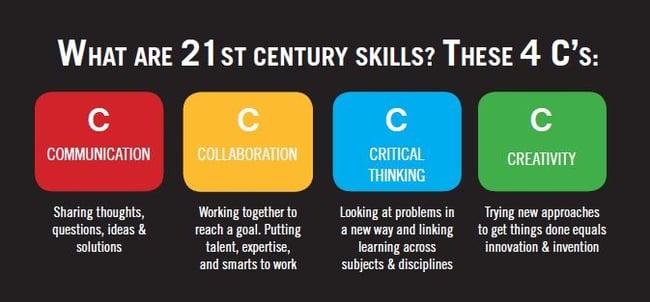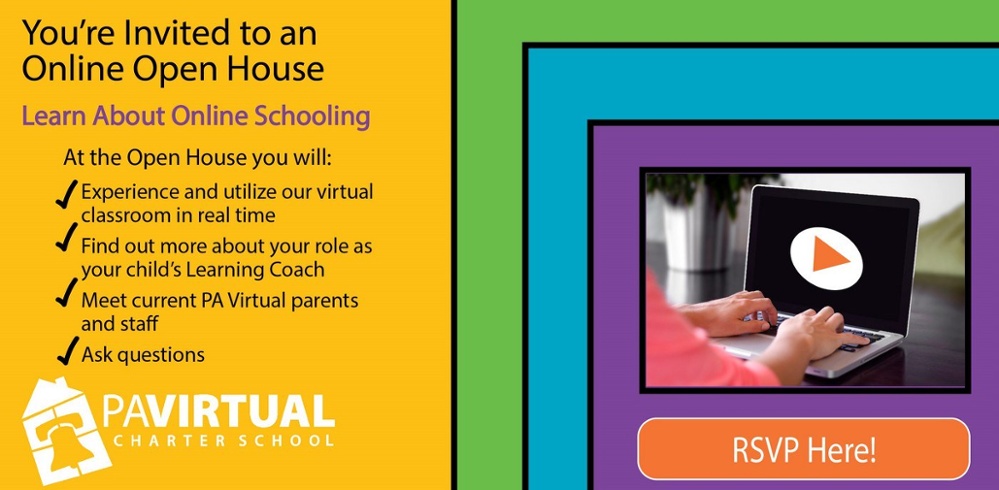Think back to your kindergarten days. What do you remember? The smell of crayons and paint? Perhaps the texture of sand from a sensory table. Did you have a few favorite friends?
I’m here to tell you that while those attributes of kindergarten are still alive and well, the educational components of kindergarten are rapidly growing. Standards are set for every grade level, and that includes kindergarten. Check out a few of these Pennsylvania State Standards that kindergarteners are studying:
-
Standard - CC.1.1.K.C Demonstrate understanding of spoken words, syllables, and sounds (phonemes). • Recognize and produce rhyming words. • Count, pronounce, blend, and segment syllables in spoken words. • Blend and segment onsets and rimes of single-syllable spoken words. • Isolate and pronounce the initial, medial vowel, and final sound (phonemes) in the three-phoneme (CVC) words.
-
Standard - CC.1.4.K.F Demonstrate a grade-appropriate command of the conventions of standard English grammar, usage, capitalization, punctuation, and spelling. • Capitalize first word in sentence and pronoun I. • Recognize and use end punctuation. • Spell simple words phonetically.
-
Standard - CC.2.2.K.A.1 Extend concepts of putting together and taking apart to add and subtract within 10.
-
Standard - CC.2.4.K.A.1 Describe and compare attributes of length, area, weight, and capacity of everyday objects.
Each year, families in my class are amazed by the amount of content in kindergarten. It certainly isn’t limited to these educational subjects. History, science, music, and art are just a few more content areas that kindergarteners are learning about today. There’s also a plethora of social and emotional development occurring in kindergarten through collaboration and group play. It is so nice for students to gradually grasp the school routine with peers that are embarking on this new adventure, too! With today’s evolving technology, teachers can make school fun and relatable to the real world. Below I will describe a few components of the kindergarten experience and relate them to the ever-changing virtual world.
A Motivation to Learn
Let’s face it: it’s hard to sit still! I’m certain you struggle to stay in place when there is laundry to be finished and toys need new batteries. The same goes for our kids. We would like for them to sit and focus, but they continue to think about those six toys that you still haven’t fixed.
Imagine the struggle to catch up on kindergarten content and new first grade skills while learning how to sit and focus on school. This might not create a very positive outlook on education. When students begin their educational careers in kindergarten, they are gradually learning to focus and sit for short periods of time while gaining confidence. As they become successful with easier kindergarten standards, their motivation to learn rises. Their minds gradually switch to the educational focus that requires the developmentally appropriate 10-20 minute attention span.
So how do we develop this sense of confidence and success virtually? We keep it fun and predictable with a lot of participation! A variety of programs are offered to practice skills. This appeals to the students’ learning styles and cravings for variety. In our synchronous model, routine classes take place with smaller groups. There isn’t that daunting class size of 25-30 students. The skills taught face to face are further supported with the online curriculum and supplemental platforms. Face-to-face classes include substantial opportunities for participation both verbally and visually. This model only requires the students to focus for two hours in 30-minute increments. Just enough time to ease the students, and their peers, into this world.
While we work hard on motivating your young learner, there are a few things you can do, too! Creating a literacy-rich home, promoting organization, and celebrating mini achievements are only a few ideas. You can read more in this article from “Education Corner” titled 12 Strategies to Motivate Your Child to Learn.
Early Cognitive Development
“I’ll take ‘Earth Structure, Processes and Cycles’ for 500”
As mentioned earlier, the standards for kindergarten are gradually rising. Kindergartners are demonstrating early reading skills and a strong understanding of numbers and operations. Standards are also set in History, Art, Environment, and Ecology. To view the full list of PA State Standards, you can peruse the PDE Standards Aligned System. Use the left sidebar to select “Kindergarten” and the content area of choice.
At PA Virtual Charter School, the kindergarten classrooms are adhering to these standards and integrating them to create a model that consistently revisits and reviews using interactive online tools. They provide an incredible amount of platforms for students to practice their skills. A fully virtual format will allow your student to independently meet goals while engaging in auditory lessons through the K12 Online School (OLS), reading aloud in Reading A-Z, and playing games with Study Island. A face-to-face classroom setup will also use these programs, but supplement them with live interactions with a teacher. This teacher can easily get to know your child and generate lessons based on their strengths and weaknesses.
Naturally, subjects are reviewed and developed upon in first grade. That strong foundation in the content areas can be nurtured through the kindergarten experience. The familiarity and connections are rapidly recognized when students have already seen, heard, or experienced a notion. So, where do you start? Here is a detailed Kindergarten Readiness Checklist provided by PA Virtual Charter School.
Social and Emotional Development
Five-year-olds love to talk, even when no one is in the room! They are eager to please others and actively engage in building friendships. It’s imperative that this natural social and emotional development is supported. Sending your child to kindergarten will provide the opportunity for this natural development to occur. Curious about other developmental milestones? Check out this article by Very Well Family.
Kindergarten will provide experiences and opportunities for collaboration that support 21st century skills. Teachers across the country are supporting their students’ futures by providing the skills they will need in higher education and the workforce. And yes, this starts young! Below are the Four C’s of 21st Century Skills:

Kindergarteners love classroom exercises that combine these skills. It is not only developmentally appropriate, but it also integrates content areas in a fun and memorable way. Are you wondering if it’s possible to use these skills in a virtual format? Well, it is! For example, students participate in a seed study with a partner. Both students have planted a seed at home. They communicate together in a breakout room to discuss the progress of their plants. They employ critical thinking skills to determine why there are similarities and differences. Their creative skills are employed when using the whiteboard feature to draw a picture of their plants. Together, they collaborate on predicting the next stage of their plants.
Technology Skills
We can’t raise our children the same way we were raised.
This world is significantly different.
Our world is driven by technology. Computer literacy expectations increase as students progress from grade to grade. Starting early can only strengthen these skills, making them more proficient for the coming years. Remember those standards mentioned earlier? There are technology ones, too! Kindergarteners should exhibit competency with computers.
Integrating your kindergartener into a virtual environment will support their fine motor skills while driving their tech-savviness. Check out a few of the additional 21st century skills your little learner will develop, and their relation to education:
-
Mouse control – This develops fine motor skills strength that can be applied to early handwriting skills.
-
Hand-eye coordination – This too helps with the fine motor skills needed for handwriting.
-
Typing skills – Students must quickly locate and identify letters on a keyboard. The formatting of a keyboard allows this to be more unpredictable than an alphabetical format leading to letter fluency.
-
Respect – Students are learning to be gentle and use technology respectfully. This requires patience and self-control. These two important skills are learned in the kindergarten years and applied throughout school.
Conclusion
Supporting a kindergartener in a virtual classroom does require hands-on assistance from an adult. They may be called upon to assist with a link or a new log-in. Someone needs to monitor the student’s attentiveness to the lesson and classroom rules. As these young minds adapt to a virtual world, a plethora of opportunities arise. Their competency with technology is integral for their future in education and careers.
Kindergarten is an important time to develop a foundation for learning. Students can easily build upon their skills to propel them through the following grades. This simple introduction to the school day routine creates confidence that develops a motivation to learn. Social and emotional skills are extremely important at this age. It’s imperative that your child applies collaboration techniques with peers that are also new to the school day routine. The confidence created from these early learning skills and socialization will develop motivated learners for the future.
If you'd like to learn more about PA Virtual and how our program could benefit your child, we invite you to attend an upcoming online open house and get all of your questions answered live. We periodically offer special kindergarten-focused open houses, so be sure to check our RSVP page for upcoming dates.
About the Author: Amy Dajczak is a kindergarten teacher at PA Virtual.





Comments